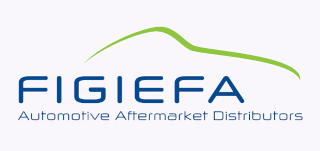Independent Automotive Aftermarket rallies EU Parliamentary support for fair competition and consumers’ freedom of choice in the Digital Single Market
27 October 2015. FIGIEFA, the European association of independent automotive aftermarket distributors, together with the sector associations gathered in AFCAR, held a workshop at the European Parliament to inform its Members (MEPs) on how digitalisation will, without urgent action from the EU legislator, have adverse effects on fair competition and consumers’ freedom of choice in the automotive aftermarket. MEPs were urged to ensure that the existing parts, servicing and repair markets are not foreclosed through the technological ‘backdoor’, whereby almost all vehicle data would be exclusively channelled to vehicle manufacturers with the new telematics technology. Only a truly interoperable, standardised, secure and open-access telematics platform, as mandated by the eCall Regulation, can ensure that consumers can freely choose their preferred service provider.
The “Digital Single Market Strategy” is the EU’s strategy to make the EU’s single market fit for the digital age, tearing down regulatory walls and online barriers so that consumers and businesses can fully benefit from the digital age. This technological revolution already exists and is evident in all markets, including the automotive sector. Whereas FIGIEFA welcomes the new technological advances and its benefits for consumers, this same technology would also erect new barriers to free competition if in-vehicle telematics systems continue to be designed in a closed and proprietary manner.
To inform MEPs about the need for regulatory framework to ensure consumer choice and free competition in the automotive aftermarket, FIGIEFA, in cooperation with other organisations representing consumer organisations and the entire independent automotive aftermarket, organised the “Internet of Things on Wheels” workshop, under the kind patronage of MEPs Róża Thun (EPP, Poland) and Evelyn Gebhardt (S&D, Germany).
Laurianne Krid, Director at the FIA Region I, and representing the motorist, highlighted the key elements to ensure consumer acceptance, namely informed consent and data protection, the right to choose the preferred service provider, and fair competition in the marketplace to enable the creation of competitive and innovative products.
Sylvia Gotzen, Secretary General of FIGIEFA, pleaded for a more inclusive definition of ‘platforms of things’ in the EU’s Digital Single Market Strategy, to take into account how platforms are already developing in the real world. “The possibility of independent service providers to maintain their ability to innovate and compete also in the digital era and to allow the development of competitive ‘connected’ services and products must be ensured. The level playing field currently enshrined in EU legislation (Block Exemption, Euro 5) needs updating for the digital age, and the Digital Single Market Strategy must be alive to this issue.”
Neil Pattemore, Technical Director of both FIGIEFA and sister association EGEA, said, “There is no technical reason for the channelling of vehicle data to one recipient, nor any legitimate security or safety concern. ‘Platforms of things’ can be designed and made to correspond to the principles of openness, company data protection, competition and consumer choice in the digital era, whilst ensuring equal rights for all economic stakeholders – all that is needed is the political will and awareness.”
